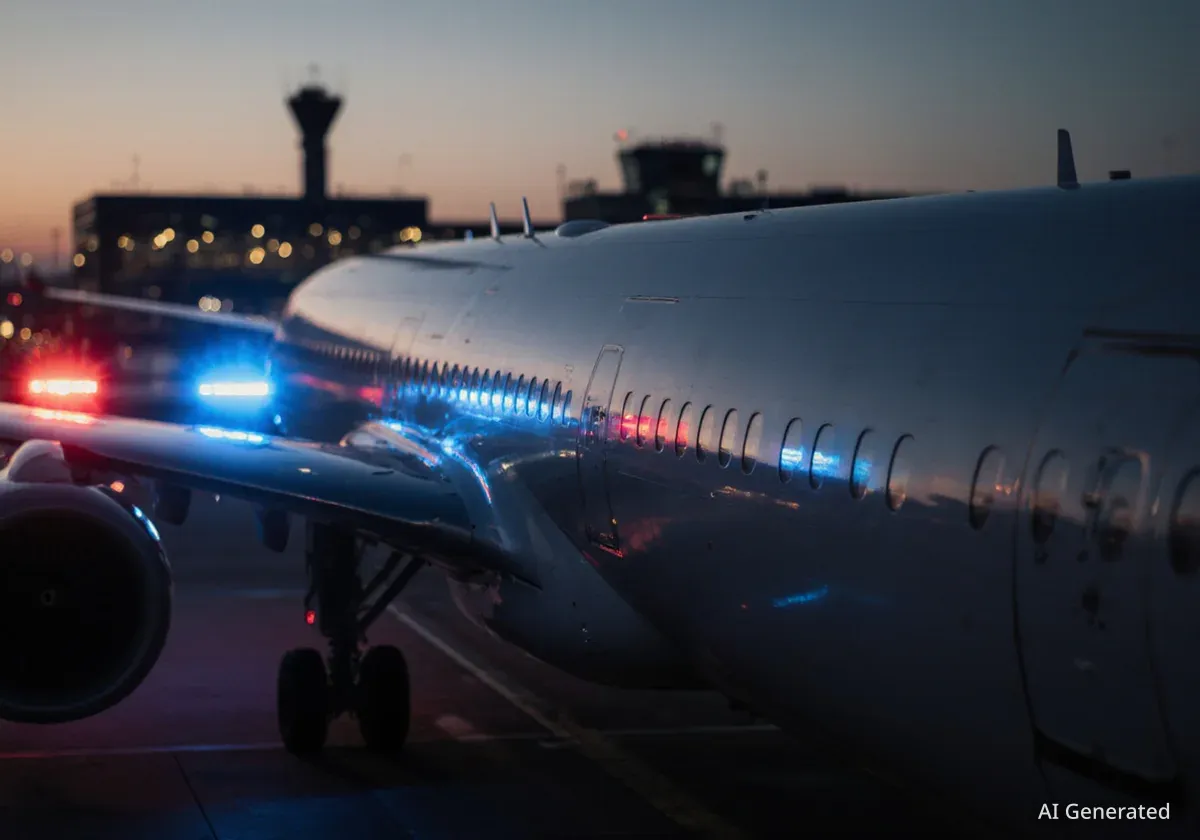Kenai Aviation, a regional air carrier in Alaska, has abruptly ceased all operations as of November 3, citing overwhelming financial debt. The sudden shutdown has canceled all scheduled flights, leaving several remote communities, including Unalakleet, without vital air service to major hubs like Anchorage.
Key Takeaways
- Kenai Aviation ceased all flight operations on November 3 due to financial insolvency.
- The closure leaves remote Alaskan communities, such as Unalakleet, without a direct air link to Anchorage.
- Owner Joel Caldwell attributed the shutdown to a heavy debt load originating from the COVID-19 pandemic.
- This event is part of a larger trend of regional airlines struggling with high operating costs and post-pandemic recovery challenges.
Sudden Closure Leaves Communities Isolated
The announcement was made by owner Joel Caldwell on the company's website and social media channels, stating the decision was immediate. Customers with existing bookings received emails confirming the cancellation of their flights, with the status of refunds remaining unclear.
The impact is most severe for residents of Unalakleet and surrounding villages. For many, air travel is not a luxury but a necessity for accessing essential services, including specialized medical treatments in Anchorage. The loss of Kenai Aviation's scheduled service creates a significant logistical and financial burden for these communities.
This situation is worsened by the fact that Ravn Alaska, once the state's largest regional carrier, had previously withdrawn service from these same routes. Kenai Aviation had stepped in to fill the gap, but as a smaller operator, it faced constant operational challenges.
A Lifeline Severed
For remote areas like Western Alaska, regional airlines are the primary mode of transportation for people, mail, and essential goods. The absence of reliable air service can lead to what community leaders in nearby St. Paul have termed an "economic and social emergency," disrupting everything from healthcare appointments to the local economy.
Financial Pressures Mount for Regional Carriers
In his statement, Caldwell explained the company's financial struggles. He pointed to a significant debt load incurred during the COVID-19 pandemic as the primary cause. "Carrying that burden increased the effects of every obstacle that we’ve had to navigate," he wrote.
A recent, costly maintenance issue that grounded one of the airline's key aircraft, a King Air, further strained its finances. While the plane was back in service and flights were reportedly full, the company was unable to overcome its existing debt obligations.
"We have to cease all operations immediately. I am devastated," Caldwell stated in his public announcement.
Kenai Aviation's collapse is not an isolated event. The regional aviation sector has faced a difficult recovery since 2020, grappling with high fuel prices, maintenance costs, and intense competition. In 2025 alone, several other small and mid-sized airlines globally have filed for bankruptcy or shut down.
A Troubling Trend in Aviation
The year 2025 has seen numerous airlines cease operations worldwide, including Silver Airways (USA), Fly PLAY (Iceland), and Air Belgium. This highlights the fragile financial state of many carriers in the post-pandemic era.
The Search for a Stable Solution
Community leaders are now urgently seeking a new, reliable air service provider. The primary avenue for this is the federal Essential Air Service (EAS) program, which subsidizes airlines to serve remote communities that would otherwise lack air travel options.
However, efforts to secure a new EAS contract are complicated by the ongoing government shutdown. According to Kelsi Ivanoff, an Unalakleet resident involved in resolving the service gap, the shutdown prevents federal agencies from awarding new carrier contracts.
Without Kenai Aviation, the remaining travel options are limited and often prohibitively expensive, such as taking an indirect flight through Nome. This adds significant time and cost for residents needing to travel.
An Uncertain Future
Despite the shutdown, Joel Caldwell has indicated he is not giving up on the airline, which was originally founded in 1961. He acquired the company in 2018, saving it from a previous closure.
"Our operations may stop, but this vision continues," Caldwell wrote, expressing his belief that the service Kenai Aviation provided is "worth saving." He is actively seeking new capital and partners to revive the company.
"We need capital, we need partners, we need a lifeline. That investor is out there, we just need to find them. One promise that you can hold me to, is that, if at all possible, I will find that life line."
For the communities that depended on its flights, any potential revival must come quickly to restore the connection they have lost.





